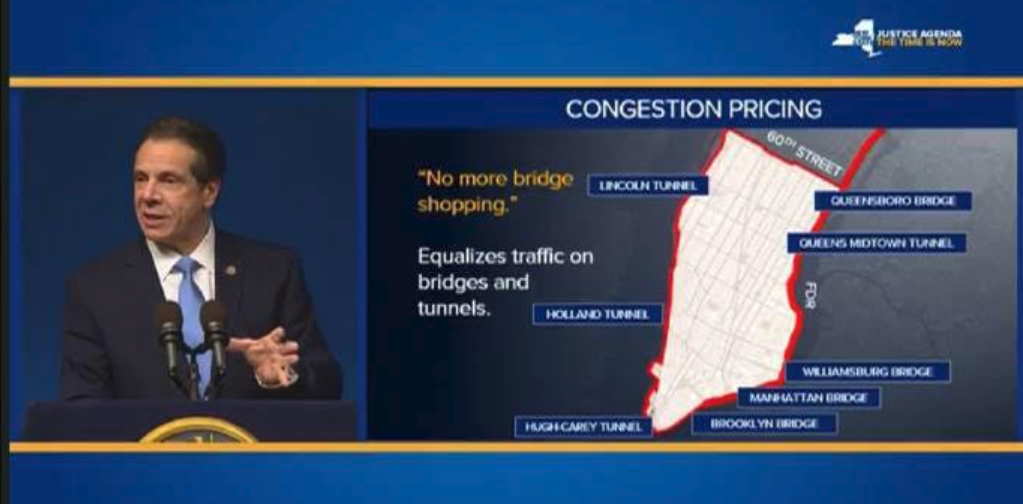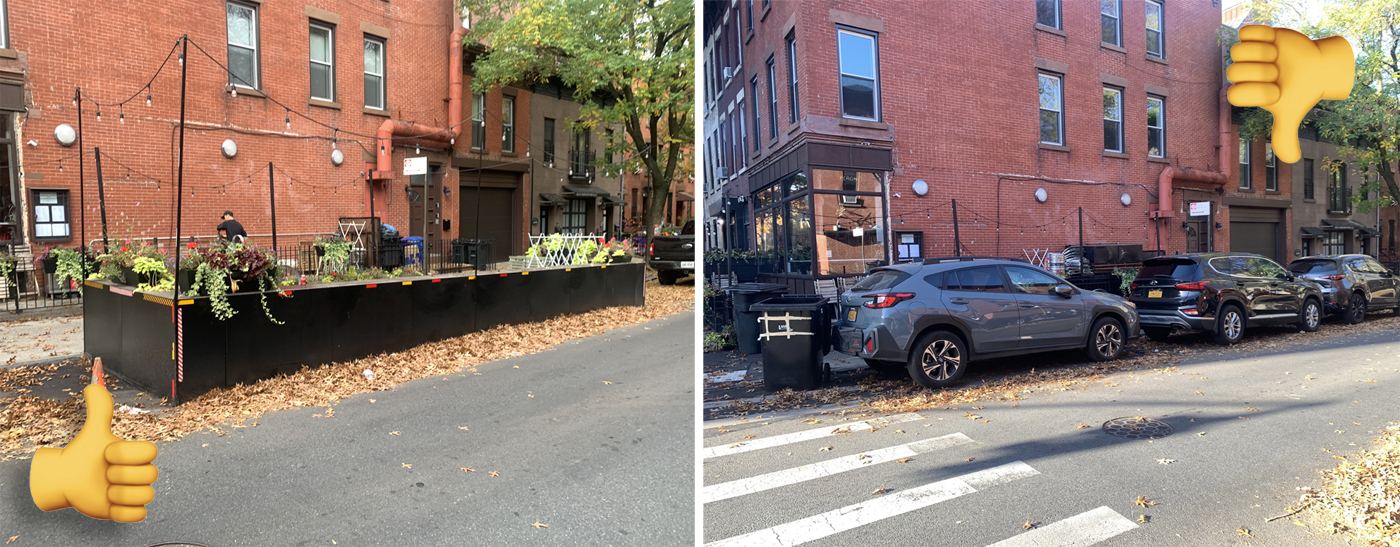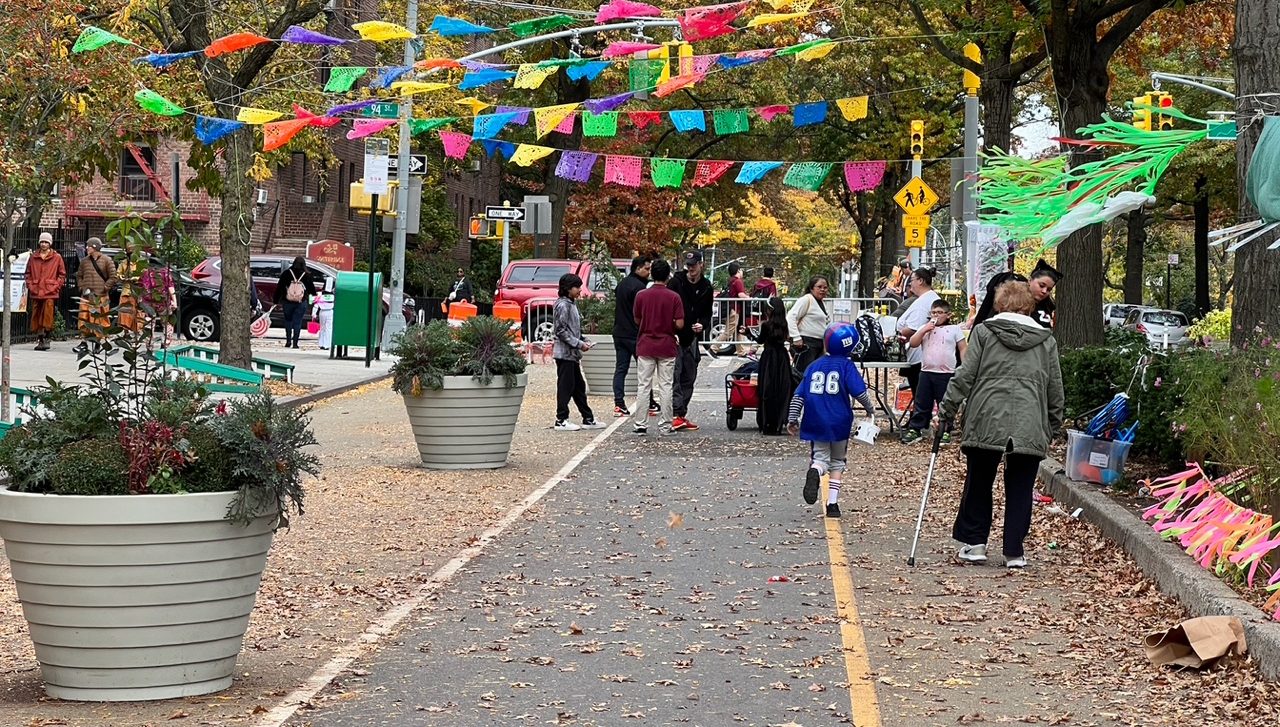Tom Brady? More like Tom delay.
Gov. Cuomo's legislative achievement in passing congestion pricing last year has stalled in an unnecessary tiff with federal officials — and advocates who spent most of last year supporting the governor now want him to be the quarterback who pushes the ball over the goal line and actually create the tolling mechanism that will raise $15-billion in desperately needed MTA funding.
The governor — who an aide really did liken to New England Patriot's future Hall of Fame leader Tom Brady — has long known that federal officials need the state to undertake an environmental review of the tolling scheme. Certainly, there is some evidence that the Trump Administration is actively slow-walking congestion pricing by not declaring whether the state needs to do a full review or a scaled-down one, but the governor needs to act now, advocates say.
Throwing up his hands and blaming federal officials only creates doubt that he is strongly behind the program.
"It would be helpful if Gov. Cuomo [came out and] said that we're going to do congestion pricing," said Ben Fried, spokesman for the TransitCenter. "It would put some speculation to rest on where the governor stands, at least."
Which means the state should have started — not yesterday, not last week, but months ago — an initial environmental review, no matter how ridiculous it sounds to be reviewing the environmental impact of a proposal that will reduce the environmental damage done by cars.
"It's patently absurd to posit that a program that will reduce by double digits the amount of vehicle miles traveled into, on the borders of, and within the Manhattan core is somehow going to be bad for the environment," said congestion pricing expert and advocate Charles Komanoff.
Yes, the federal government and the MTA each blame each other for the impasse, but Komanoff and others think that the state needs to tackle the uncertainty head-on: by starting the review! If the state would simply start an environmental assessment, the work could form the basis for a more-intense, more time-consuming, Environmental Impact Statement, should the feds ask for one.
A full EIS won't be necessary because the environmental assessment will be such a slam dunk, said Komanoff, who has already run all the relevant numbers through his Balanced Transportation Analyzer, which shows that congestion pricing wouldn't overwhelm areas outside the Central Business District (north of 60th Street in Manhattan).
He likened the environmental assessment to "putting together a basketball team of all Michael Jordans against a team of all Frédéric Weises," he said, referring to the unfortunate Knicks 1999 draft pick who ended up only being known as the guy Vince Carter literally dunked over in a game at the 2000 Sydney Games. "The model can't do anything other than predict that the Jordans will defeat the Weises, 178 to 19. There is no model that will say anything else.
"The EA [will] make clear that there's no significant adverse impacts, but also that there are monumental positive environmental impacts," Komanoff added. "That helps keep the political support intact."
But neither the MTA nor the governor are planning to go on the offensive, making them the Frédéric Weis in this scenario. Indeed, on Wednesday, MTA Chairman and CEO Pat Foye kept up the fight with the federal government, charging that the Federal Highway Administration was delaying the badly needed congestion toll.
"The MTA is doing everything in its power ... but right now we're waiting on the federal government," Foye said, giving no evidence that the MTA was, in fact, doing anything. "The reality is federal inaction would result in worsening congestion on city streets, delay improvements to air quality in the region and put the MTA's capital plan at risk."
Foye was merely echoing his boss, Gov. Cuomo, who suggested that President Trump — who has a Twitter account that lobs bombs on virtually every topic yet has been silent on congestion pricing — is stalling.
"Will they hold approval on congestion pricing hostage? Yes," Cuomo told reporters in late February.
That kind of passivity isn't what people expect from Gov. Cuomo — whose Chief of Staff Melissa DeRosa really did tell The Atlantic that her boss was "the Tom Brady of New York politics" because "at the end of the day ... he’s able to put the ball in the end zone."
Would Tom Brady be sitting on the bench watching the clock tick down to zero? No, he'd be executing his greatest two-minute drill.
"I think we'd like to hear an outline of that fight," said Danny Pearlstein, the spokesman for Riders Alliance. "This is a governor who's acted very boldly to secure his other priorities at many different stages of his decade in office. And just as we wanted to see him apply his acumen to getting congestion pricing passed, more broadly, we want to see that determination applied to fixing the subway. And implementing congestion pricing is a very important part of that.
"We think of this governor as a guy who wins," Pearlstein added. "That's why we want him to detail how he's going to take action to deliver this immensely important goal for millions of New Yorkers."
First, the governor needs to go on the offensive (you know, like the quarterback we all love to hate). But that doesn't seem likely, given that the MTA is hunkered down, "preparing for the worst [the full EIS]," according to one insider, who requested anonymity.
So, second, Cuomo needs to go on another offensive (yes, like that same quarterback) and make a plan for filling a one-year budget hole if congestion pricing does not start on time in January, 2021. Without the $1 billion annually from congestion pricing tolls, the MTA can't raise $15 billion in bonds, a key chunk of the $51-billion capital plan.
The missing $1 billion must be raised now, said Nick Sifeuntes, the executive director of the Tri-State Transportation Campaign.
"It's something that's up to the governor," Sifuentes said. "If congestion pricing isn't going to happen this year, he needs to decide how the state is going to [fulfill] his promises about what's going to happen to the MTA over the next five years."
But Sifuentes suggested that this war with Donald Trump is part of a game for the cameras.
"Here's the thing: Gov. Cuomo is nothing if not tactical," he said. "So I'm going to assume that there's a method to the madness that I'm not privy to. This is a guy who generally is playing chess and thinking a few moves ahead of everybody else."
Except chess doesn't have a clock — and this one does: January, 2021, when congestion pricing is supposed to start.






